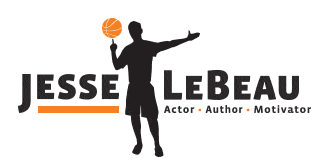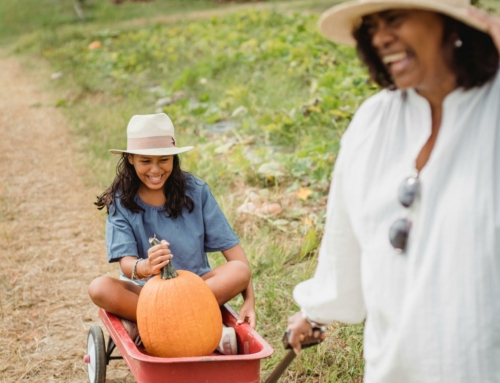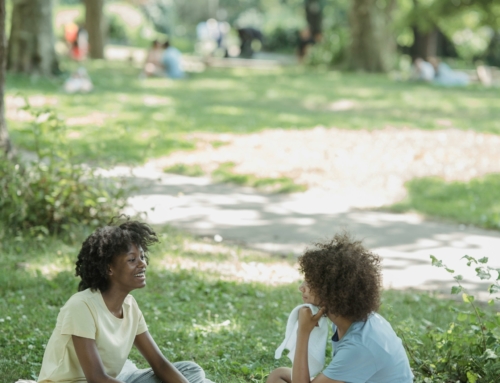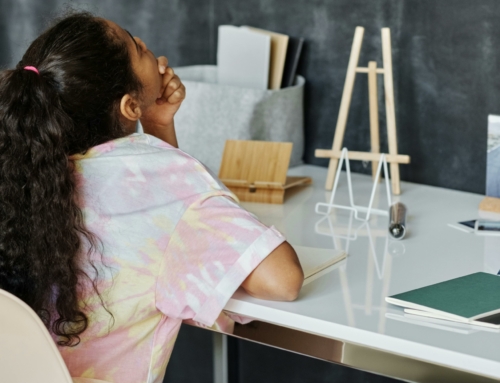Mastering Relationship Skills: A Teen’s Guide to Navigating Friendships and Connections
Life as a teenager is like being in a boat on the open sea. Sometimes, it’s smooth sailing under clear skies, and other times, you’re navigating through choppy waters, trying to find your way amidst the fog. One thing that makes this journey smoother? Your crew – the relationships and friendships you build along the way. I’m here to talk about Mastering Relationship Skills: A Teen’s Guide to Navigating Friendships and Connections. It’s not just about making friends or getting along with people; it’s about understanding the core of what makes relationships tick, thrive, and last.
Relationship skills are like the compass and map that guide you through these waters. They help you communicate better, understand others’ feelings, and make meaningful connections. And guess what? Your teen years are the perfect time to develop these skills. It’s when you start forming deeper friendships, maybe fall in love for the first time, and learn a ton about who you are and who you want to be around.
So, why focus on relationship skills now? Because they’re the foundation of pretty much everything in life. Good relationships can lift you up, give you support during tough times, and make the good times even better. But building and maintaining healthy relationships isn’t always easy – it takes work, understanding, and a bit of heart.
In this guide, we’ll dive deep into what it takes to build those solid, meaningful connections. We’ll talk about the importance of communication, listening, setting boundaries, and much more. I’ll share some of my own stories – the good, the bad, and everything in between – to show you that you’re not alone in this. Together, we’ll explore how to navigate the challenges of teenage friendships, deepen your connections, and even expand your social circle in a way that feels right for you.
But it’s not just about making friends; it’s about being a friend. It’s about building a network of relationships that will support you, challenge you, and help you grow into the person you’re meant to be. And let me tell you, the skills you develop now will benefit you for a lifetime, in ways you might not even expect.
So, are you ready to set sail and master the art of relationships? Let’s dive in and discover how to turn those interactions into meaningful connections that last. Trust me, it’s a journey worth taking, and I’m here to guide you through it, step by step.
The Importance of Relationship Skills in Your Teen Years
As teenagers, you’re at a pivotal point in life. It’s like being at a crossroads, with so many paths unfolding in front of you. The relationships you cultivate now can light up these paths, guiding you towards becoming the best version of yourself. But why are these skills so crucial during your teen years? Let’s break it down.
Understanding the Role of Relationships in Personal Growth
Imagine for a moment you’re climbing a mountain. It’s challenging, right? Now, imagine you’re doing it with a team, where everyone supports each other, offering a hand or a word of encouragement when needed. Feels different, doesn’t it? That’s the power of relationships. They not only make the climb easier but also more enjoyable.
During your teen years, you’re figuring out who you are and who you want to be. It’s a time of intense personal growth, and the relationships you have play a massive role in this. They act as mirrors, reflecting parts of yourself you might not see. They challenge you, support you, and celebrate with you. Each friendship, each connection, contributes to shaping your identity, values, and beliefs.
Why Your Teen Years Are Crucial for Building Strong Relationship Foundations
This is the time when you start to form your first deep connections outside of your family. The skills you develop now—communication, empathy, understanding—are the building blocks for all future relationships, romantic or platonic. Think of them as practice for the more complex relationships you’ll navigate in adulthood.
But here’s the kicker: the habits you form now, good or bad, tend to stick. Learning to communicate openly, set healthy boundaries, and support others sets a precedent for how you’ll interact with people for the rest of your life. Conversely, if you struggle with these skills, it can lead to misunderstandings, conflicts, and missed opportunities for deeper connections.
The Takeaway
Investing time in developing your relationship skills is like planting seeds for a garden you’ll enjoy for years to come. These skills enable you to form and maintain connections that will enrich your life, offering support, joy, and companionship. And let’s be honest, life is infinitely better when shared with people who understand you, cheer you on, and push you to be your best.
As we move forward, remember: mastering relationship skills isn’t about becoming perfect. It’s about growing, learning from your experiences, and becoming the kind of friend—and person—you’d want to have by your side.
The Basics of Building Healthy Relationships
Building strong, healthy relationships might seem like navigating a maze at times. Every turn brings a new challenge, and it’s easy to feel lost. But don’t worry; I’ve got your back. Let’s explore the fundamentals that form the backbone of every great relationship. Understanding these will not only make your journey through the maze a lot smoother but also a lot more enjoyable.
Communication is Key: How to Express Yourself Effectively
Imagine if every time you texted a friend, your messages got jumbled and sent random emojis instead. Frustrating, right? That’s what poor communication in relationships can feel like. Clear communication is the cornerstone of any relationship. It’s about more than just talking; it’s about expressing your thoughts, feelings, and needs in a way that’s understandable to others.
Here’s the secret sauce: active listening, empathy, and honesty. When you communicate, do it with the intention of not just being heard, but also understanding the other person. And remember, it’s a two-way street. Encourage your friends to share openly with you, too. This mutual understanding builds a strong foundation for trust and respect.
Listening Skills: Understanding Beyond Words
Listening is an art. It’s about tuning in to what the other person is saying, both verbally and non-verbally. Pay attention to their words, tone, and body language. Sometimes, what people don’t say is just as important as what they do.
Active listening involves engaging with what the other person is saying, asking clarifying questions, and reflecting back what you’ve heard. This shows that you truly care about their thoughts and feelings. Plus, it helps you get to the heart of what they’re communicating, strengthening the connection between you.
Setting Boundaries: The Foundation of Respect in Relationships
Boundaries are like the personal space bubble you wish you had in crowded places. They help you define where your limits lie and how you expect to be treated by others. Healthy boundaries are crucial for mutual respect in any relationship.
Setting boundaries can be tough, especially if you’re worried about how others will react. But remember, setting boundaries is a sign of respect for both yourself and your friend. It’s about finding a balance that works for both of you, where each person feels valued and heard.
The Takeaway
Building healthy relationships is about mastering the basics: clear communication, active listening, and respecting boundaries. These are the tools that will help you navigate the maze of relationships with confidence. And while it might seem daunting at first, remember that every journey starts with a single step. So, take that step, communicate openly, listen with intent, and set boundaries that respect both you and your friends. The relationships you build using these skills will be the ones that last a lifetime.
Navigating the Challenges of Teenage Friendships
Navigating teenage friendships is like riding a rollercoaster. One minute, you’re laughing at the top of your lungs, and the next, you’re holding on tight, bracing for the next sharp turn or sudden drop. It’s thrilling, unpredictable, and sometimes downright scary. But it’s also where some of the best memories are made. Let’s dive into how to handle the ups and downs, making sure every twist and turn strengthens your friendships, instead of testing them.
Dealing with Conflict: A Step-by-Step Guide
Conflict is a part of life, especially when emotions and stakes are high, as they often are during your teenage years. But dealing with conflict doesn’t have to end in disaster. It can actually be an opportunity to deepen your understanding and connection with friends.
Here’s how to handle it:
-
Stay Calm: Take a deep breath and give yourself a moment to cool off. Responding in the heat of the moment can escalate things.
-
Communicate Clearly: Use “I” statements to express how you feel without blaming the other person. For example, “I feel hurt when I’m left out of plans.”
-
Listen: Give your friend the chance to share their side of the story. Understanding their perspective can change everything.
-
Find a Compromise: Look for a solution that works for both of you. Sometimes, just understanding each other’s feelings can be enough to resolve the conflict.
Overcoming Peer Pressure: Staying True to Yourself
Peer pressure is like being caught in a current; it can sweep you away from your values and decisions. Staying true to yourself amidst it all requires a strong sense of who you are and a commitment to your values.
Remember, real friends will respect your decisions and boundaries. They’ll support you in being your authentic self, not pressure you into being someone you’re not. Trust your instincts. If something feels off, it probably is. Surround yourself with friends who lift you up and encourage you to make choices that are right for you.
The Art of Making (and Keeping) Friends
Making new friends is about stepping out of your comfort zone and being open to new experiences. It’s about showing genuine interest in others, being yourself, and finding common ground. But making friends is just the beginning; keeping them is where the real work comes in.
Friendship is a two-way street. It requires effort, understanding, and a willingness to invest time and energy. Be the friend you’d like to have—supportive, trustworthy, and kind. Celebrate your friends’ successes, be there for them during tough times, and don’t forget to have fun together. After all, shared laughter is the glue of lasting friendships.
The Takeaway
Navigating teenage friendships isn’t always easy, but it’s definitely worth it. The friends you make during these years can become like family, offering support, laughter, and memories that last a lifetime. So, embrace the rollercoaster with open arms. Be ready to handle conflicts with grace, stand firm against peer pressure, and put in the effort to build and maintain strong friendships. Remember, in the end, it’s not about having the most friends; it’s about having the right ones.
Deepening Connections: Beyond the Surface Level
In a world where “friends” can often mean numbers on a social media page, diving deep and forming real, lasting connections feels like a breath of fresh air. It’s about moving beyond the “what’s up?” into the “what’s really going on?”—and it’s where the magic of friendship truly begins. Let’s explore how to deepen those ties, creating friendships that withstand the test of time and change.
Empathy and Understanding: Walking in Someone Else’s Shoes
Empathy is the superpower of relationships. It’s about truly understanding what another person is going through—feeling with them, not just for them. When you approach your friends with empathy, you’re saying, “I see you, I hear you, and what you feel matters to me.”
But empathy isn’t just about the big moments; it’s also about noticing the small changes and nuances in your friends’ moods and behaviors. It’s asking, “Are you okay?” when you notice they’re a bit off and being there to listen, really listen, when they need to talk.
Building Trust: The Glue of All Lasting Relationships
Trust is built one action at a time. It’s the result of consistent honesty, reliability, and integrity. Building trust means showing up when you say you will, keeping secrets when you’re entrusted with them, and being honest, even when it’s hard.
But here’s the thing about trust—it’s fragile. It takes time to build and only a moment to break. So, handle it with care, nurture it, and protect it like the precious commodity it is in your relationships.
Supporting Your Friends: Being There in Times of Need
Supporting your friends isn’t just about being there for the tough times; it’s also about celebrating their successes and joys. It’s cheering for them loudly, being their biggest fan, and showing them love and appreciation, reminding them of their worth, especially when they forget.
Real support also means being honest with them, offering constructive feedback when they need it, and holding them accountable. It’s about striking a balance between being their cheerleader and their coach, guiding them towards their best selves.
The Takeaway
Deepening connections in friendships is about empathy, building trust, and offering unwavering support. It’s the journey from being just friends to becoming confidants, allies, and soulmates. This journey doesn’t happen overnight, but with each step, each shared experience, and each moment of understanding and support, you weave a stronger, more resilient fabric of friendship.
So, dare to dive deep. Ask the tough questions, share your own vulnerabilities, and be there—truly there—for your friends. The connections you’ll forge will be the ones that not only last a lifetime but also shape and enrich your life in ways you never imagined.
Expanding Your Social Circle: Embracing New Relationships
Stepping out of your comfort zone to meet new people can feel like standing on the edge of a diving board for the first time. It’s exhilarating, sure, but also kind of terrifying. What if you don’t fit in? What if you say something weird? These thoughts can hold you back from jumping into some of the most rewarding experiences of your life. But here’s the thing—every friend you have now was once a stranger. Let’s talk about how to bridge that gap, making the leap into new friendships and expanding your social circle.
Stepping Out of Your Comfort Zone: Why It’s Worth It
Growth happens at the edge of your comfort zone. By challenging yourself to meet new people, you’re not just gaining friends; you’re learning about different perspectives, lifestyles, and cultures. It’s about enriching your life and opening doors to new ideas and opportunities.
Start small if you need to. Say hi to someone new in class, join a club or group that interests you, or volunteer. These small steps can lead to big changes in your social landscape.
Finding Your Tribe: Connecting with Like-minded Individuals
Not everyone you meet will become your best friend, and that’s okay. The goal is to find your tribe—people who share your interests, values, and outlook on life. When you find people who “get” you, being yourself becomes effortless.
Look for communities, both online and offline, where your interests are shared. Whether it’s sports, arts, activism, or technology, there’s a group out there for you. Being part of a community not only helps you make connections but also supports personal growth and learning.
The Role of Social Media: Making Connections in the Digital Age
Social media is a double-edged sword. It can be a fantastic tool for staying in touch and meeting new people, but it’s important to use it wisely. Authentic connections are about quality, not quantity.
Use social media to enhance your relationships, not replace them. Follow and engage with groups or individuals who inspire you and share your passions. But remember, the goal is to eventually take these connections offline. Real friendships thrive on real-world interactions, not just likes and comments.
The Takeaway
Expanding your social circle is about being open to new experiences and stepping out with confidence. It’s about finding your tribe and nurturing those connections, both online and offline. Remember, every great friendship starts with a single interaction. So, take the plunge, be open to meeting new people, and watch your social circle grow.
As you embark on this journey, carry with you the lessons of empathy, trust, and support we’ve talked about. With these tools in hand, you’re not just making friends; you’re building a community that will support you, challenge you, and grow with you through the years.
Putting It All Together: Relationship Skills in Action
Embarking on the journey of mastering relationship skills is like setting sail on a grand adventure. You’ve got your map, your compass, and a clear sky. Every conversation, every shared laugh, and even every disagreement is a step towards discovering the vast oceans of what it means to connect deeply with others.
Real-Life Scenarios and How to Handle Them
Scenario 1: A Misunderstanding with a Friend
Imagine you’ve accidentally hurt a friend’s feelings without realizing it. They’re upset, and you’re confused. Here’s where your communication and listening skills come into play. Approach them with empathy, ask for their perspective, and listen—really listen. Acknowledge their feelings, apologize sincerely, and discuss how you can avoid similar misunderstandings in the future.
Scenario 2: Feeling Left Out
You see pictures of your friends hanging out without you and feel left out. Before jumping to conclusions, remember the importance of trust and giving the benefit of the doubt. Talk to your friends. Express how you felt, but also be open to hearing their side. It’s an opportunity to set boundaries and communicate your needs, reinforcing the foundation of your friendship.
Scenario 3: A Friend Going Through a Tough Time
A friend is going through a difficult period and seems to be withdrawing. This is where being supportive and showing empathy makes all the difference. Reach out, let them know you’re there for them, offer a listening ear, and remind them of their strengths. Sometimes, just knowing someone is there can be a beacon of hope.
Tips for Continual Improvement of Your Relationship Skills
-
Reflect on Your Interactions: After conversations or social gatherings, take a moment to reflect on what went well and what could be improved.
-
Seek Feedback: Don’t be afraid to ask close friends or family for feedback on your communication and relationship skills.
-
Practice Active Listening: Make a conscious effort to listen more than you speak in conversations, focusing fully on understanding the other person’s perspective.
-
Stay Open and Curious: Be open to meeting new people and curious about their stories and experiences. Every person you meet can teach you something valuable.
How These Skills Will Benefit You Beyond Your Teen Years
The relationship skills you cultivate now will serve you well beyond your teenage years, into adulthood. Whether it’s forming professional connections, nurturing romantic relationships, or building your own family in the future, these skills are the foundation upon which strong, healthy relationships are built. They lead to deeper understanding, mutual respect, and a sense of belonging—elements that are key to a fulfilled and happy life.
The Takeaway
As we bring our guide to a close, remember that mastering relationship skills is a lifelong journey. There will be smooth sailing and rough seas, but each experience is an opportunity to learn, grow, and connect more deeply with those around you. Keep your heart open, your mind curious, and your intentions clear. The relationships you nurture today are the ones that will illuminate your life’s path, making the journey all the more rewarding.
Thank you for embarking on this journey with me. Here’s to building connections that last a lifetime, filled with understanding, laughter, and mutual growth. Remember, in the grand adventure of life, the relationships we cherish are the treasures we carry with us.
Conclusion
Embracing the Power of Relationships
Understanding and mastering relationship skills as a teenager sets the stage for a lifetime of meaningful connections. These skills—the ability to communicate openly, listen empathetically, set healthy boundaries, and offer support—are not just tools for navigating your teenage years; they’re foundational to your journey through life.
As you continue to grow and evolve, the relationships you nurture now, based on trust, respect, and genuine connection, will become the cornerstones of your personal and professional life. They will be sources of joy, comfort, and inspiration, guiding you through challenges and celebrating your successes.
The Journey Ahead
The road to mastering relationship skills is ongoing and ever-changing. It’s a path paved with trials and triumphs, each interaction a step toward deeper understanding and connection. Remember, perfection is not the goal—growth is. Every experience, whether a fleeting moment of connection or a challenging conflict, is an opportunity to learn more about yourself and others.
A Call to Action: Keep Building, Keep Growing
Now, as we reach the end of this guide, I encourage you not to see it as the conclusion but as the beginning of your adventure in mastering relationship skills. Take what you’ve learned, the stories and strategies shared, and apply them in your daily interactions. Keep building your skills, keep growing your connections, and keep sharing your journey with others.
-
Join our community: Dive deeper into the art of building relationships by joining our free Facebook group. It’s a space for sharing experiences, challenges, and victories on the journey to mastering relationship skills.
-
Explore the Attitude Advantage Program: For those looking to take their personal development to the next level, the Attitude Advantage Program offers tools, resources, and support to empower you in your growth journey.








